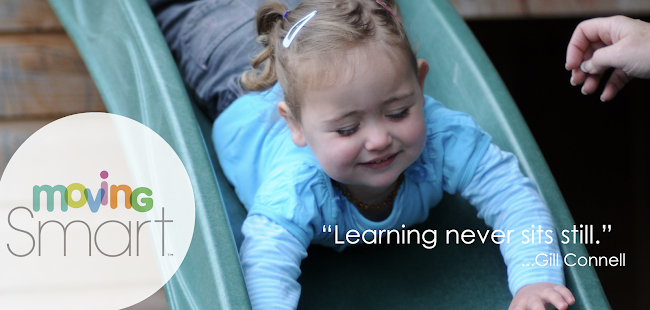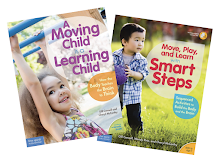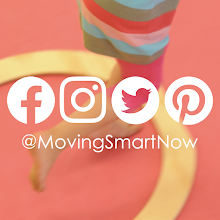I’ve read so many articles recently on the sad state of our children’s outdoor lives – what some call Nature Deficit Disorder -- that I've been wanting to put my two cents in as well. So here goes...
Most of the articles rightly make the argument that children need fresh air and sunshine for their good health, and an appreciation of nature for their well-rounded well-being. Parents know this intellectually. Kids know this intuitively. Researchers will back them both up. And I whole-heartedly agree with all of them. But beyond health and well-being, I think there are even more reasons why kids need to get outside and get to know nature personally...
Kids need to move their bodies everyday in lots of ways and with as much freedom of choice as is safe and practical to allow in order to develop both their bodies and their brains. To that end...
MORE movement is possible outdoors than in. Just is.
See if this sounds familiar. Don’t run in the house... don’t make a mess in the house... don’t roughhouse in the house... all reasonable restrictions parents have always placed on their children’s indoor play. After all, parents live here too. Years ago, the solution was simple. Shoo the kids outside. But that’s not the case any more.
Today, parents seem afraid to let children go outdoors. Whether it's stranger danger, potential skinned knees, the thinning ozone layer or whatever the reason, loving and protective parents are keeping their kids close.. and often indoors.
Now, I’m not here to tell any parent what’s right or wrong about their parenting decisions. But I am here to plead the case for your child’s need to move... a lot... which requires the kinds of large, open and varied expanses only the outdoors can accommodate. For instance, running as fast as you possibly can can't be done indoors. Neither can running uphill or down, in the tall grass or the sand, through a summer shower or over an icy slope. Yet it's these exact kinds of diverse conditions young children need to build their bodies, challenge their abilities, and develop self-assurance. If your child can't get outside to play as often as he needs and wants to, in my view, it's unlikely he'll be stretching himself to his fullest potential.
GROWING AN ENVIRONMENTALIST
Some futurists predict the single, greatest challenge our children's generation will face is the environment -- climate change, alternative energy sources, clean air, clean water, fresh food supplies and the like.
But if the futurists are correct, it’s hard to imagine how this next generation is going to save the environment if they haven’t actually spent much time in it. Children need to build up their knowledge and familiarity with nature in order to develop respect for it. And respect, along with resourcefulness, is what our planet is going to need from our children. So I say, best to start early.
DISCOVERY
And once they do get outside, there it is... nature's endless treasure hunt of things large and small to fascinate the curious, inspire the imaginative, and humble us all. Like a small child, nature never stops growing and changing. And like a great teacher, nature always has something new to share. Excitement-hungry kids never tire of nature because nature always has another mystery up her sleeve.
NO SUBSTITUTE
Arguably, the biggest competitor nature has for children’s time and attention is technology. TVs, computers, smart phones and the like are compelling to the point of compulsive. Images flashing furiously across the screen set to pulse-pounding soundtracks feel rich and full.
But even when the content is educational in intent, it's no substitute for the real thing... for seeing nature in the flesh, hearing it, touching it, smelling it, tasting it, running through it, around it, on it, over it, and getting dirty in it.
No screen – not even those that mimic 3D vision – can ever provide the sensory experiences, physical clarity, and emotional enlightenment nature provides free of charge every day.
AND IF YOU’RE STILL NOT CONVINCED...
Think of this. If you've printed out this blog, you’re holding a tree in your hand. If you’re reading this on a screen, you’re holding a dinosaur fossil.
Everything comes from nature. Including us. And we'd all do well to step outside and remember that.
MEET MUDDO, THE MUDDOSAURUS!
Thanks to the Nature Action Collaborative for Children and World Forum Foundation for creating International Mud Day! And in honor of the occasion I thought you all might enjoy meeting a mysteriously, muddy creature known as the Muddosaurus. Muddo, as I call him, lives in my garden and loves mud. But he's very, very shy and I've actually never seen him. Know how I know he's there? Because each time it rains, he comes out to play and leaves his footprints in the mud for me to find. I sure would like to meet Muddo someday...
THE GAME
I wonder how we might coax shy Muddo to come out and play with us today? What if we left our muddy footprints in the mud for Muddo to find?
UNDERSTANDING TIME & SPACE... LEAVING YOUR MARK
Footprints fascinate little ones. The idea that they have left their imprint on the land not only makes them feel powerful and important, it also introduces the abstract concepts of time and space. A hand or footprint left behind is a tangible sign "I was there" and now "I'm over here."
DIFFFERENT WAYS TO PLAY
Any amount of mud will do, however, if you're squeamish, you can also play in wet sand in the sandbox or at the beach.
If you don't have sand or mud handy, dust the patio or driveway with flour which makes a great canvas for imprints.
If you're in colder climates, play the winter version with Muddo's cousin, Snowasaurus!
And of course, anytime you're indoors, a tub or two of Play-Doh, makes this a great tabletop finger game.
INTRODUCING THE GAME
If this is a first-mud experience for your child, start by showing him how to leave a footprint in the mud. Have him clomp around and makes lots of mud prints, and notice how he watches to see the marks he's left behind. (For first-timers, this may be enough. But if your child wants more, then continue.)
MEET MUDDO
Tell the story of the mysterious Muddosaurus who loves leaving his footprints in the mud. But he's really shy and doesn't come out to play unless there's a friend around. Muddo might come out to play if we make Muddo footprints for him to follow.
1. Encourage your child to show you what Muddo's footprints look like...
I wonder how big Muddo's feet are?
I wonder how many toes Muddo has?
I wonder how many feet Muddo has?
I wonder where Muddo would like to go today? Should we make him a path?
2. Now, if you're really adventurous, take the next muddy step...
I wonder what Muddo's hands are like? What would it look like if Muddo put his hands in the mud?
Maybe Muddo would come out to play if we drew a picture for him in the mud.
3. And finally, and certainly not for the faint of heart...
I wonder what it feels like to be a Muddosaurus who rolls in the mud!
And just remember this. For generations and generations, soap and water has never failed to conquer any amount of mud a kid can get into!
Enjoy!
P.S. And if you're lucky enough to catch a glimpse of Muddo, snap a picture and send it to me.
For more information on International Mud Day go to...
















Check out the book, Mud Puddle, by Robert Munsch. Every time a little girl goes out to play, she's 'attacked' by a mud puddle. My grandson loves the book, and we created our own version of it on the iPad using the Pictello app.
ReplyDeleteHere's a link to my post about it. Wish I could link to the story we wrote.
http://nancybarth.wordpress.com/2011/04/20/hey-mud-puddle/
Great post.... as always. We are mudaholics, love the stuff. We're also really lucky to live somewhere where there is a regular Forest School for pre-schoolers. The outdoors is so important and so neglected by many parents and many schools. It's interesting (and a real shame) that just about everyone turning up to the Forest School is a parent (with a toddler) who would normally be in the outdoors anyway.... it's so hard to get the sterilised, habitual shoppers to attend these kind of things.... how the heck are their kids ever going to become environmentalists.... crisis will be the main push factor I fear! Fiona
ReplyDeleteWonderfully put! We were disappointed the other day that when we took the kids to a public city park, they were told by a park employee not to walk on the grass, to stay on the gravel path instead. We thought how very sad that even in a city park, nature is just for admiring from a man-made distance.
ReplyDeleteLove this post! Just as our bodies have more room to move in nature, our minds have room to expand and imagine. Love your mudasaurus game!
ReplyDeleteHave you been spying on me this week?? LOL
ReplyDeleteIt's school holidays here, I have all four kids in two rooms (due to renovations), it's been raining and freezing and somewhere among all of that I've forgotten that kids need to move... HAVE to move. I've spent a lot of time lecturing them about not jumping off the couch or cart wheeling in the bedroom... How futile.
Yesterday I put on several layers of clothes and we went outside, into the cold and the mud.... and loved it!
I strongly feel kids need to search, discover, and have places that encourage new movement. One of the reasons I love having some children in Rio de Janeiro is that it is a place where children are out twice a day as a part of the culture. You go to a park in the morning. You go again, to another one, in the afternoon if your child does not go to a "school" or daycare. Kids get out. It's great that way!
ReplyDeleteHi Gill, just wanted to let you know that the Outdoor Play linky party will finally be back up and running again starting tomorrow (Friday). Would love to see you back sharing more of your inspiring articles! (And btw, I'm linking to this one in tomorrow's post as to 'why play outdoors?') - Jane
ReplyDeleteApart from bringing kids outdoors to have that big space for them to move and explore freely, I think it also has to start at home. Even if you are constrained with a very tight living and activity space, you should always try to maximize it - create more storage area of any of you clutter (or at least – de-clutter your house!) and have more freed up space. I think this is the way to go.
ReplyDelete